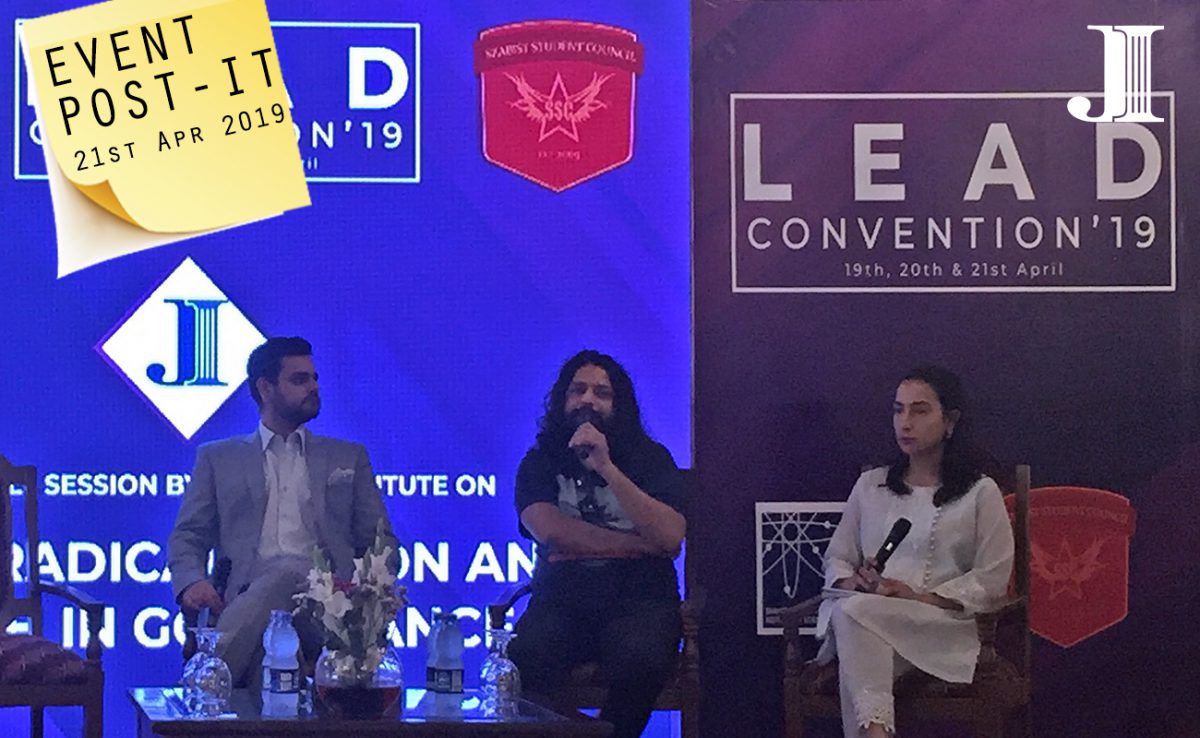Townhall
Youth in Policy and Governance
Date: April 21, 2019
At Jinnah Institute’s University Townhall on Youth in Governance at SZABIST (Karachi), cultural critic Ahmer Naqvi and lawyer Alizeh Bashir stated that young people must learn to break barriers that prevent growth and expression, and strive to prove themselves through merit in their professional fields.
Alizeh Bashir stated that young people find it difficult to navigate corporate spaces dominated by experienced veterans, but where outmoded methodologies and mindsets become barriers for innovation and adaptation. She advised that young people must hold their ground in challenging professional settings, especially women confronting the double discrimination of harassment and unequal pay, because challenging work environments can help build critical negotiation and management skills. Bashir stressed that young people should realize their own agency and work towards their goals, rather than wait for someone to grant them an opportunity. However, adopting a confrontational approach to resolving issues at the work place, reforming institutions, or revisions to corporate policy may be counterproductive. Instead, informal solutions can be devised that resolve the problem at hand while creating attention towards improving corporate governance.
Ahmer Naqvi spoke about the marginalization of youth from decision making and governance in Pakistan, and stated that successive governments over the decades have chosen not to invest in youth welfare, education or skills. With token presence in key legislative forums and low political relevance outside electioneering, youth in Pakistan continue to be treated like an add-on in policy formulation, rather than a driving force in governance. Naqvi criticized deeply ingrained cultural practices that prevent free inquiry and expression, restrict choices for youth and promote discrimination and bigotry. Responding to a lively question and answer session, he stated that young people must become more socially engaged with their surroundings and take ownership of the cities, causes and policies they seek improvements in.

